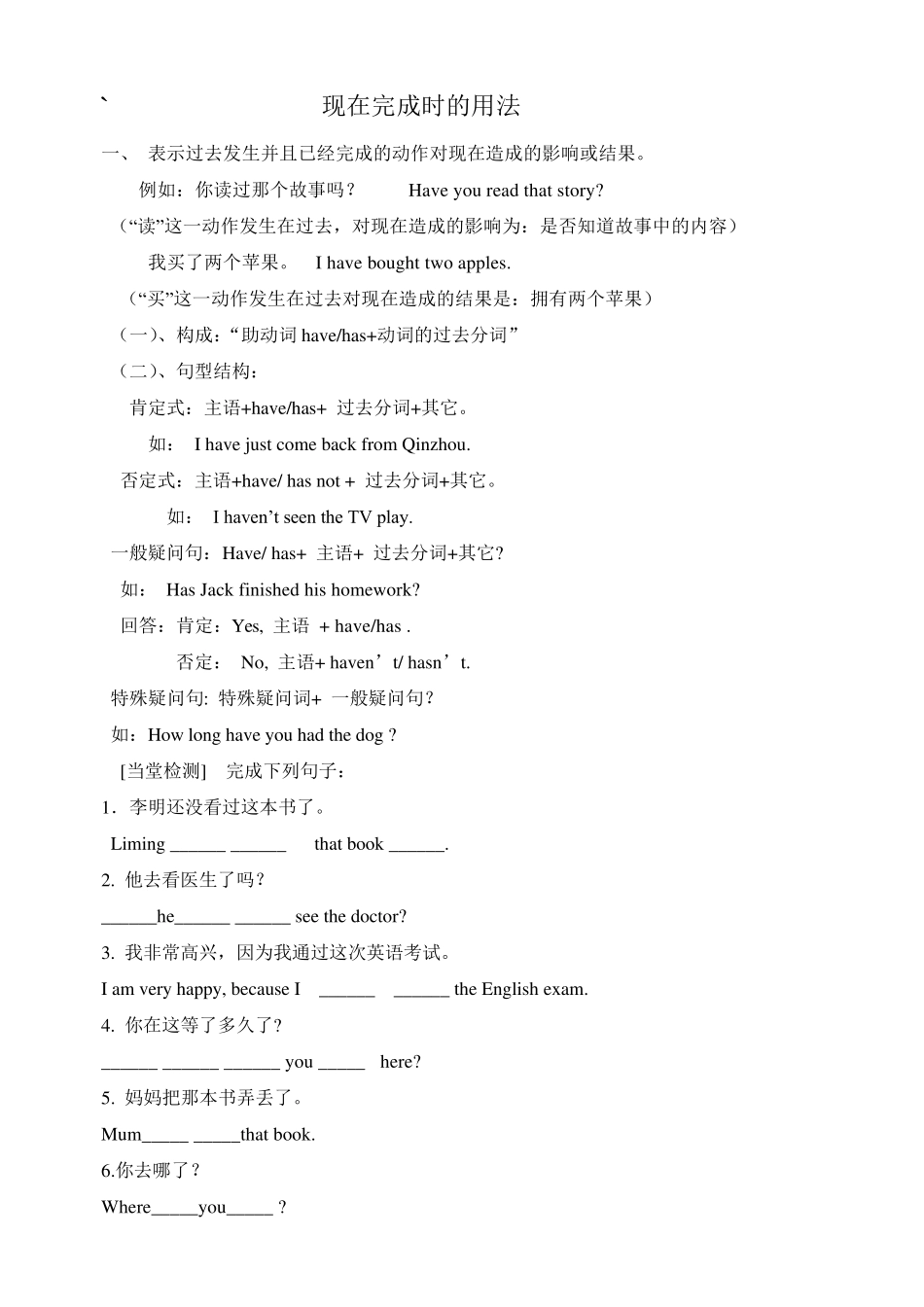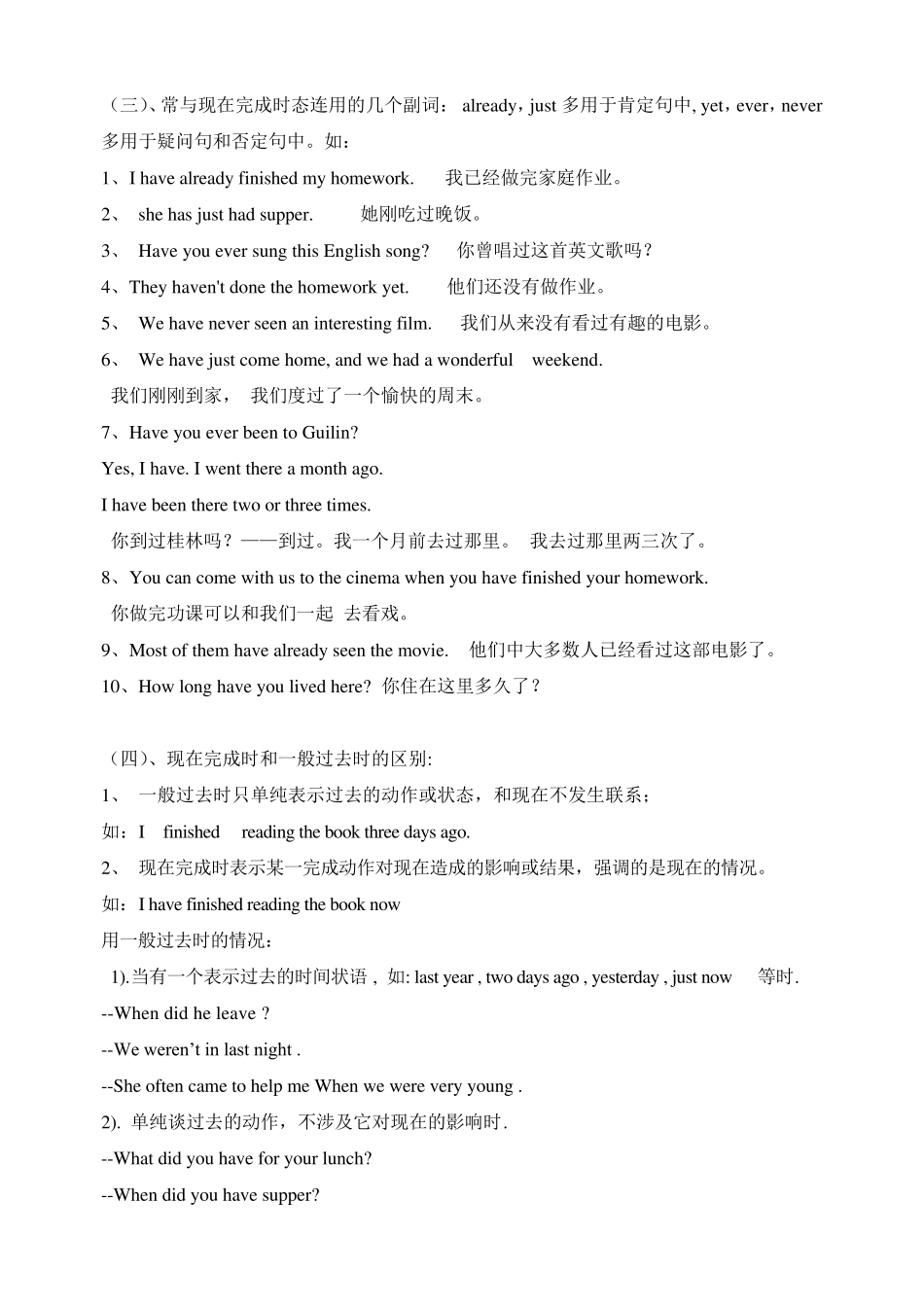` 现在完成时的用法 一、 表示过去发生并且已经完成的动作对现在造成的影响或结果。 例如:你读过那个故事吗? Have you read that story? (“读” 这一动作发生在过去,对现在造成的影响为:是否知道故事中的内容) 我买了两个苹果。 I have bought two apples. (“买” 这一动作发生在过去对现在造成的结果是:拥有两个苹果) (一)、构成:“助动词have/has+动词的过去分词” (二)、句型结构: 肯定式:主语+have/has+ 过去分词+其它。 如: I have just come back from Qinzhou. 否定式:主语+have/ has not + 过去分词+其它。 如: I haven’t seen the TV play. 一般疑问句:Have/ has+ 主语+ 过去分词+其它? 如: Has Jack finished his homework? 回答:肯定:Yes, 主语 + have/has . 否定: No, 主语+ haven’t/ hasn’t. 特殊疑问句: 特殊疑问词+ 一般疑问句? 如:How long have you had the dog ? [当堂检测] 完成下列句子: 1.李明还没看过这本书了。 Liming ______ ______ that book ______. 2. 他去看医生了吗? ______he______ ______ see the doctor? 3. 我非常高兴,因为我通过这次英语考试。 I am very happy, because I ______ ______ the English exam. 4. 你在这等了多久了? ______ ______ ______ you _____ here? 5. 妈妈把那本书弄丢了。 Mum_____ _____that book. 6.你去哪了? Where_____you_____ ? (三)、常与现在完成时态连用的几个副词: already,just 多用于肯定句中, yet,ever,never多用于疑问句和否定句中。如: 1、I have already finished my homework. 我已经做完家庭作业。 2、 she has just had supper. 她刚吃过晚饭。 3、 Have you ever sung this English song? 你曾唱过这首英文歌吗? 4、They haven't done the homework yet. 他们还没有做作业。 5、 We have never seen an interesting film. 我们从来没有看过有趣的电影。 6、 We have just come home, and we had a wonderful weekend. 我们刚刚到家, 我们度过了一个愉快的周末。 7、Have you ever been to Guilin? Yes, I have. I went there a month ago. I have been there two or three times. 你到过桂林吗?——到...


